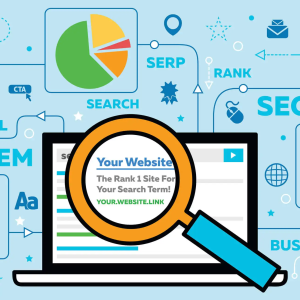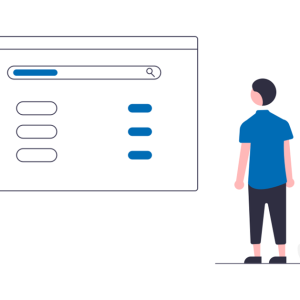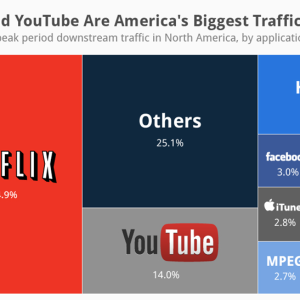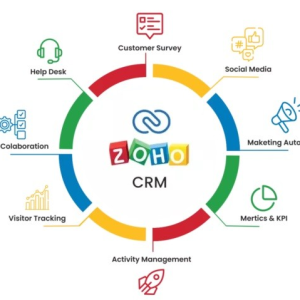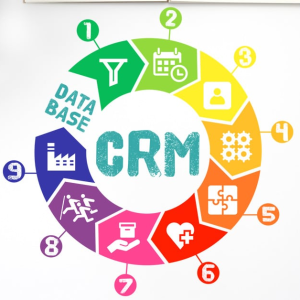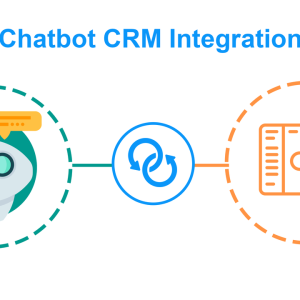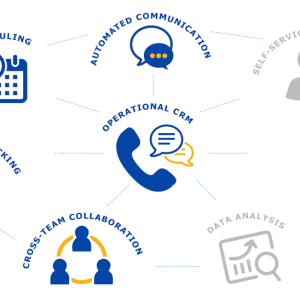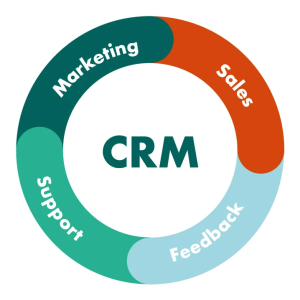Introduction
To learn about Black Hat Techniques, refer to our previous articles. But first, SEO poisoning is not the black hat itself, it is just another black hat technique, we have not discussed before. At least not directly. However, SEO poisoning is becoming more and more common, as spammers are finding new ways to get around the algorithms that search engines use to decide which websites should be ranked higher on the results pages.
To prevent your website from being targeted by these spammers, you must learn how SEO poisoning works and take steps to prevent it from happening on your site.
What Is SEO Poisoning?

SEO poisoning is a technique used by spammers to influence the search engine results pages. By adding bogus links and keywords to their websites, they can get their websites to show up higher in the search engine rankings, even if their websites are low quality or have nothing of value to offer their visitors.
SEO poisoning can be very harmful to users because it can lead them to low-quality websites that may try to scam them or infect their computers with malware. It is important to be aware of SEO poisoning and to know how to avoid it.
What Are Poison Words In SEO?
Poison words are keywords or phrases that are added to a website in an attempt to influence the search engine results pages. These words are often misspellings of popular keywords or phrases, and they are designed to trick the search engines into thinking that the website is more relevant than it is.
Poison words can be added to websites in several ways, but there are two famously misused methods.
Hidden Text
This is when the text on a website is hidden from view, typically by making it the same color as the background of the webpage. The text can be in the form of keywords or links that are designed to influence search engine algorithms and give websites higher search engine rankings.
Link Farms
Link farms are groups of websites that all link to each other in an attempt to increase their search engine rankings. These links may be legitimate or they may be hidden from view and not visible to users, which makes it harder for them to spot spammy websites and avoid being scammed or infected with malware.
Why Do Poison Words Matter?
Poison words can be very harmful to users because they can lead them to low-quality websites that may try to scam them or infect their computers with malware. It is important to be aware of SEO poisoning and to know how to avoid it.
The Difference Between SEO Poisoning And Black Hat

The common misconception among the digital squad is that SEO poisoning is another term for Black Hat.
SEO poisoning and black hat are two different methods used to influence the search engine results pages. Black hat is a more general term that refers to any method that violates the search engine’s terms of service. SEO poisoning is a specific type of black hat tactic that involves adding bogus links and keywords to a website to improve its search engine ranking.
While black hat techniques are often used by spammers to get their sites ranked higher for certain keywords, SEO poisoning is one of the tactics that they use most frequently. This is because it is a highly effective method that can help them achieve their goals without having to resort to more drastic and risky tactics like hacking or phishing.
How can you protect yourself from Spammers targeting you with SEO Poisoning Websites?

There are a few different ways that you can protect yourself from SEO poisoning:
One of the most important things that you can do is to be aware of the signs that a website may be trying to scam or infect you. These signs include poor grammar and spelling, malicious links, overly flashy or distracting design elements, and requests for personal information like your name and email address.
The internet is a weird place, and sometimes you can’t be sure if websites are safe. But, if you see any of these red flags, it’s best to steer clear of the website altogether.
Luckily Google has introduced its “Safe Browsing” tool which will tell users whether or not they should avoid clicking on any given link!
In addition to being aware of the signs of a suspicious website, you can also take some technical steps to protect your computer and your information.
- First, make sure that your computer has up-to-date anti-virus and anti-malware software installed. This will help to protect your computer from any malicious code that might be on a website that you visit.
- You should also consider installing a browser extension like uBlock Origin or AdBlock Plus. These extensions can block many of the ads and pop-ups that are associated with malicious websites.
How can you protect your website from SEO Poisoning?
First and foremost, there are plenty of life lessons to be learned from spammers. For one, it’s important not to become like them!
Be aware of the spammy tactics that spammers use. Some common spammy tactics include adding keyword-rich links or text to your website, using black hat SEO techniques like link farming and cloaking, and stuffing your content with irrelevant keywords.
By being aware of the black, grey, and negative SEO techniques, and following these simple tips, you can help to protect yourself from SEO poisoning and other online scams. With a little awareness and caution, you can enjoy your time online without worrying about getting hacked or scammed.
What are some common methods of SEO Poisoning?
SEO poisoning is a technique used by spammers to influence the search engine results pages (SERPs) by adding bogus links and keywords to their websites. This can result in their websites showing up higher in the search engine rankings, even if their websites are low quality or have nothing of value to offer their visitors.
Some common methods of SEO poisoning include:
1. Flooding the website with low-quality or irrelevant content in an attempt to game the search engine algorithms;
2. Packing the website with hidden or invisible text or links, again in an attempt to game the algorithms;
3. Creating doorway pages – pages that are designed solely to rank high in the search engines and redirect visitors to a different, usually unrelated website;
4. Link farming is everywhere, be aware – of websites that are created for the sole purpose of selling links to other websites.
5. Using automated programs (“bots”) to generate artificial traffic or create links to the website.
Overall, the goal of SEO poisoning techniques is to manipulate the SERPs so that the spammers’ websites appear higher in the search engine rankings than they otherwise would. This is often done at the expense of higher-quality websites, which are unfairly demoted in the rankings or banned from the search results altogether.
What are the consequences of SEO Poisoning?
SEO poisoning can have several unintended consequences, some of which are unknown to many people. Here are ten of the most important ones:
1. SEO poisoning can damage the reputation of a website
If a website is found to be using black-hat SEO techniques, it can quickly lose its credibility with search engines and visitors. This can cause a major drop in traffic to the website and can even result in the website being removed from search engine results pages altogether.
2. SEO poisoning can negatively impact your website’s ranking
While it’s possible to use some black-hat techniques to improve your search engine rankings, these efforts may backfire and cause your site’s ranking to drop. For example, if you try to “game” the system by adding keywords and links that are not relevant or useful, search engines may notice and penalize your website by removing it from their results pages.
3. SEO poisoning can waste time and money
Many people turn to black-hat techniques to shortcut the process of achieving high search engine rankings. However, these methods are often ineffective and can end up costing you more time and money in the long run. In addition, using black-hat methods can put your website at risk of being penalized or banned by search engines, which can further damage your online reputation and business.
4. SEO poisoning can harm your online reputation
As mentioned above, using black-hat techniques to improve your search engine rankings can backfire and damage your website’s reputation. If people find out that you’ve been using these methods, they may be less likely to visit your site or do business with you. In addition, if your website is banned from search engine results pages, it can negatively impact your brand and make it harder for potential customers to find you online.
5. SEO poisoning can reduce the quality of search results
When people use search engines to look for products or information, they expect to see high-quality, relevant results that meet their needs. By using black-hat techniques to manipulate their search engine rankings, spammers are undermining the integrity of search engines and potentially reducing the quality of results that users see.
6. SEO poisoning can create security risks for your website
Many black-hat techniques involve adding spammy links or content to a site to improve its ranking. However, these tactics can expose your website to security risks if the added links point to malicious or unsafe websites. This can lead to your site being hacked and can severely damage your online reputation.
7. SEO poisoning can weaken the value of links
One of the most important factors that search engines use to rank websites is the quality and relevance of inbound links. By using black-hat SEO techniques to boost your search engine rankings, you may end up with a large number of low-quality or spammy links that can negatively impact your website’s credibility and link value.
8. SEO poisoning can lead to legal issues
In some cases, spammers use black-hat methods to manipulate search results to sell illegal or counterfeit products. If you are caught selling these products, you could face severe legal penalties, including jail time.
9. SEO poisoning can damage your relationship with search engines
Search engines work hard to provide their users with the most relevant and useful results possible. When you use black-hat techniques to improve your ranking, you are essentially trying to trick the search engine into giving you preferential treatment. This can damage your relationship with these powerful platforms and may weaken their trust in your site, which can impact its overall ranking.
10. SEO poisoning can put your website’s future at risk
Many black-hat methods involve using outdated or unethical practices that go against current best practices for building websites, optimizing content, and engaging with online users. Using these techniques can hurt your website’s long-term success and can weaken its ability to compete with other sites in the future.
In summary, there are several reasons why SEO poisoning is bad for your website, just like how junk food is tempting but is bad for your health.
How can you recover from SEO Poisoning?
If you’ve been hit by SEO poisoning, your website’s ranking may have dropped dramatically. You may find that your website is no longer appearing in the search engine results pages (SERPs) for the keywords and phrases that are important to your business. This can be a major blow to your website’s traffic and revenue.
However, there are a few steps you can take to help recover from SEO poisoning and get your website back on track.
Identify the keywords that have been targeted by spammy links or links with low-quality content
To find these, you’ll need to examine your traffic data and search engine rankings for a specific period. If there’s been a drop in traffic during this period, those keywords have likely been hit by the SEO poisoning attack.
Once you’ve identified keywords
You should focus on, you can then start working to remove the spammy links and other negative SEO factors that are contributing to your lower search engine rankings. One way to do this is by using Google’s disavow tool, which will help you to remove those spammy or harmful links from your website’s link profile.
You may also want to try some of the other tactics listed below to recover from SEO poisoning and improve your search engine rankings:
- Conduct a thorough backlink audit and remove any spammy or low-quality links from your website.
- Work on improving the quality of your backlinks. This can include making sure that you’re only acquiring high-quality, relevant links that are likely to have a positive impact on your rankings.
- Focus on creating high-quality content that is more likely to resonate with your target audience. Quality content is important not only for SEO but also for building trust and engagement with your visitors.
- Make sure that all of the information on your website is up-to-date and consistent across all of the different pages. This will help you to avoid any duplicate or conflicting content issues that can negatively impact your search engine rankings.
If you’re able to successfully recover from SEO poisoning, you should start seeing an improvement in your website’s search engine rankings and traffic levels. By focusing on improving the quality of your backlinks, content, and overall website design and user experience, you can work on building a stronger relationship with your visitors – and increasing your chances of ranking higher in the search engines.
SEO Poisoning Websites To Be Aware Of
SEO poisoning can be a major problem for website owners and online businesses. To combat this, it’s important to be aware of the websites that are using SEO poisoning techniques to influence the search engine results pages. Some of the most notorious SEO poisoning websites include:
2. Fiverr
3. WarriorForum
These websites are known for selling links and keywords that can be used to artificially boost a website’s search engine ranking. While we love these websites, and there are some legitimate services offered on these websites, the majority of their content is designed to manipulate the search engine results.
Conclusion
The digital black market, the dark side of the internet is a place where people buy and sell all sorts of things. Some are illegal but some aren’t – SEO poisoning stands out as one thing everyone wants for their website because it’ll make them rank higher on search engines like Google or Bing!
And what’s more surprising is that 57% of digital marketers say they’ve been targeted by competitor SEO poisoning campaigns. The problem is on the rise, with 63 percent believing it to be a major issue – but luckily there are ways you can avoid getting stranded!
All said and done, Search Engine Optimization (SEO) is an art, and you need an agency that could do it gracefully for you, such as ourselves at 12 Channels, we can make sure your site gets ranked higher and gets the recognition it deserves! (Without having to use ‘these’ techniques’)

